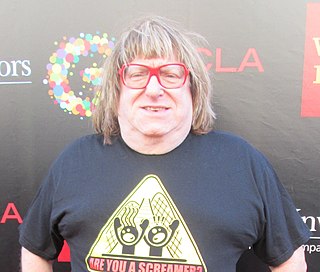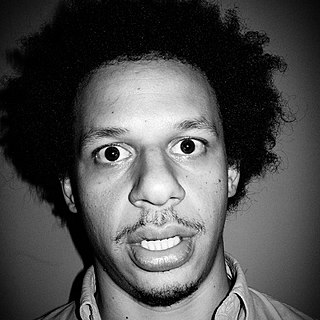A Quote by Bruce Vilanch
I like that we don't have to come out the first 10 minutes and score, you know, with joke, joke, joke. We can open it in a more novel way and keep playing different pranks as we go through the thing.
Related Quotes
I have become a giant fan of the testing process, especially with a comedy. I mean, they tell you what's funny. It's almost tailor-made for people who shoot the way we shoot, trying a million different options and versions of things. Because the audience doesn't laugh at a joke, we put in another joke. If they don't laugh at the next joke, we put in another joke. You just keep doing them and you can get the movie to the point where every joke is funny, if you have enough options in the can.
People try to put ownership on things: 'That's mine, that's my joke.' No such thing. Like if you tripped or stumbled and people go, 'Oh, that's Charlie Chaplin.' You know what I mean? You can't own a joke. You can be the guy that tells it the best, but you can't own a joke. Nowhere can you own a laugh.
There's different kinds of improv. There's Second City improv where you try to slowly build a nice sketch. There's stuff you do in college coffee houses where you just go joke, joke, joke. Bring another funny character with a funny hat on his head. Christopher Guest is more the line of trying to get a story out.
People can write jokes five minutes after a major world event happens, and have hundreds of thousands of people read them within 10 minutes. Whereas before you write a joke, you don't know if anybody is really touching on it or not, and you tell it onstage the next night. For joke writing it has changed things.
You know, I liken it to - when you write a joke for somebody else, it's like you - you know, like the Wile E. Coyote dynamite plunger, where he pushes the plunger down and then you see the fuse go then there's an explosion in the distance? That's like writing a joke for somebody. When you tell the joke, you're in the explosion.
I had an awful joke about Auschwitz I drove everybody crazy with that joke. But that joke makes me feel good. You know what "cuit" means? When something is cooked. It's a joke like that: "What are the birds doing when they fly over Auschwitz? 'Cuit! Cuit!'" It's awful, but it's desacralizing. For me, it's good.


































